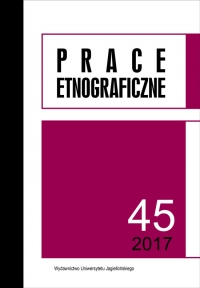Uwagi o (nie)przydatności konceptu homo sovieticus na przykładzie badań wśród białoruskich kołchoźników
Some remarks about the (un)usefulness of the concept of homo sovieticus according to the reasearch on Belarusian kolkhoz villagers
Author(s): Anna EngelkingSubject(s): Anthropology, Sociology
Published by: Wydawnictwo Uniwersytetu Jagiellońskiego
Keywords: homo sovieticus; kolkhoz; field research; Belarusian studies
Summary/Abstract: The author on the grounds of her ethnographic field research in kolkhoz villages in Belarus negatively verifies the established, orientalising concept of homo sovieticus as a possible tool of interpretation. She concentrates on the relation between the kolkhoz inhabitants and the authorities at both the local and the state level. She argues that in the kolkhozniks’ worldview the authorities at both levels are a modern variant of a feudal pattern of the “good master”. The concept of homo sovieticus has been constructed to grasp the psychological effects of long-term living under the rule of the authoritarian Soviet system: fearing the authorities and having a slave-like approach to them. The Belarusian villagers have rather functioned in a symbiosis with the authorities, based on a feudal principle of hierarchical complementarity. As the imaginary of the kolkhozniks reflects the archaic, sacral content of the more distant past, it seems more adequate to define them as homo (post)traditional or homo (post)feudalism.
Journal: Prace Etnograficzne
- Issue Year: 45/2017
- Issue No: 4
- Page Range: 415-428
- Page Count: 14
- Language: Polish

